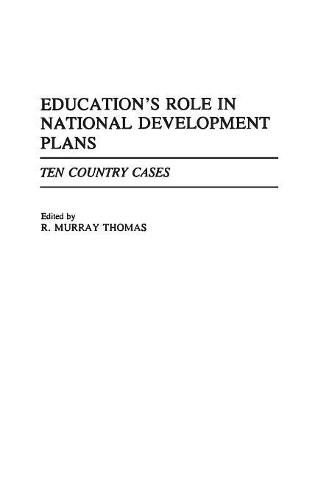
Education's Role in National Development Plans: Ten Country Cases
(Hardback)
Publishing Details
Education's Role in National Development Plans: Ten Country Cases
By (Author) R. Murray Thomas
Bloomsbury Publishing PLC
Praeger Publishers Inc
23rd March 1992
United States
Classifications
Tertiary Education
Non Fiction
Philosophy and theory of education
Central / national / federal government policies
370.11
Physical Properties
Hardback
304
Width 156mm, Height 235mm
652g
Description
The 1990s opened with dramatic readjustments in the world. Nations that had been governed for decades by single-party socialist regimes were suddenly rejecting their traditional systems of socioeconomic development and new leaders were searching for modes of planning and management that could bring their people economic prosperity and political freedom. These events are of particular concern to educators who have been concerned over the past four decades with the effectiveness of the educational provisions inserted into national development programmes. Such interest is not limited to Eastern bloc communist countries, but extends as well to other nations, socialist and capitalist alike, that have adopted centralized national planning. This book identifies the place that education has been assigned in the national development programmes of a varied selection of nations - large and small, capitalist and socialist, industrialized and agrarian, Eastern and Western, Northern and Southern. The authors consider the problems these nations (Soviet Union, German Democratic Republic, Pakistan, Egypt, People's Republic of China, South Korea, Indonesia, Papua New Guinea, Tanzania, and Zaire) have encountered in managing educational components, and assesses the effectiveness of the plans and of the measures adopted for solving the educational problems.
Author Bio
R. Murray Thomas is professor emeritus at the University of California, Santa Barbara.
